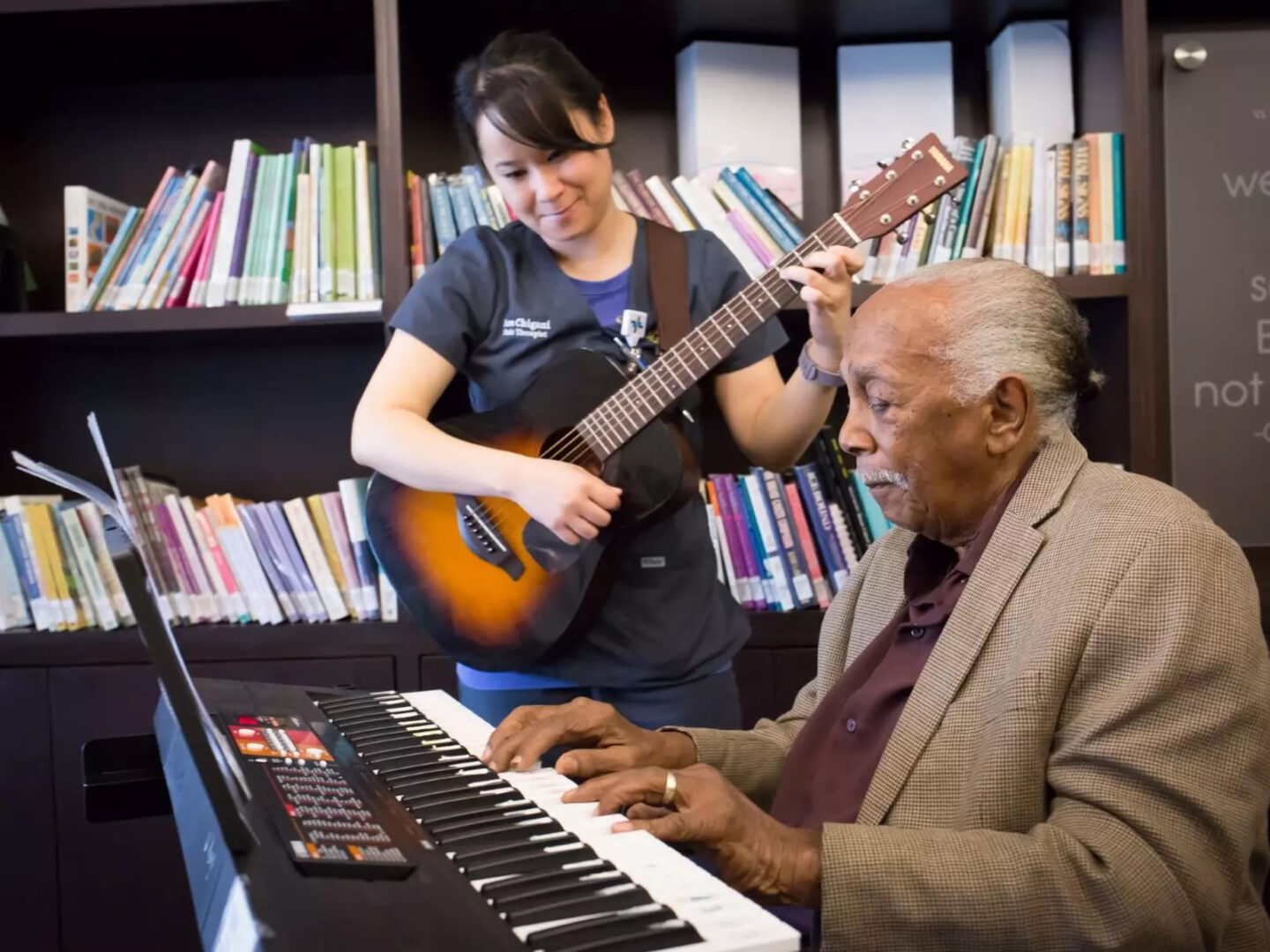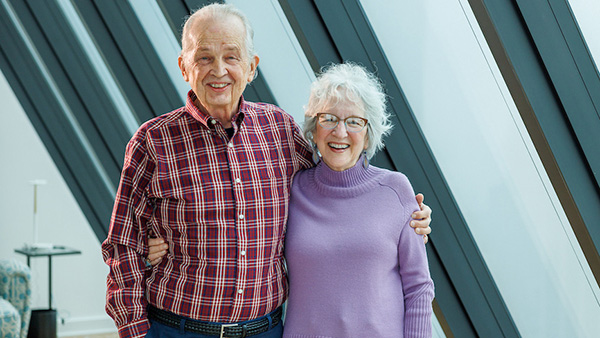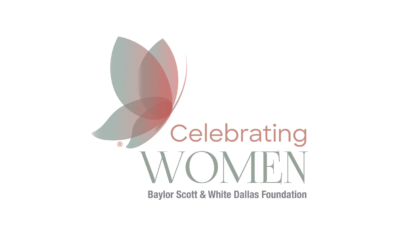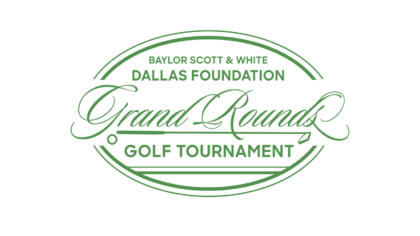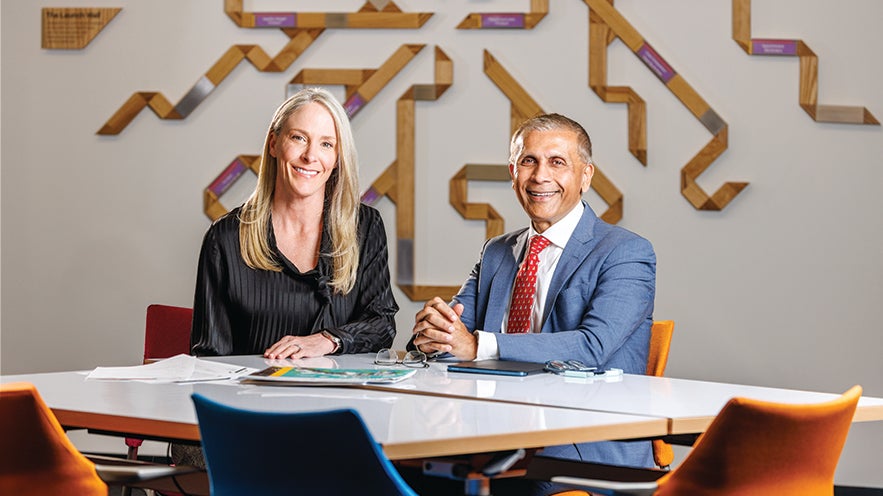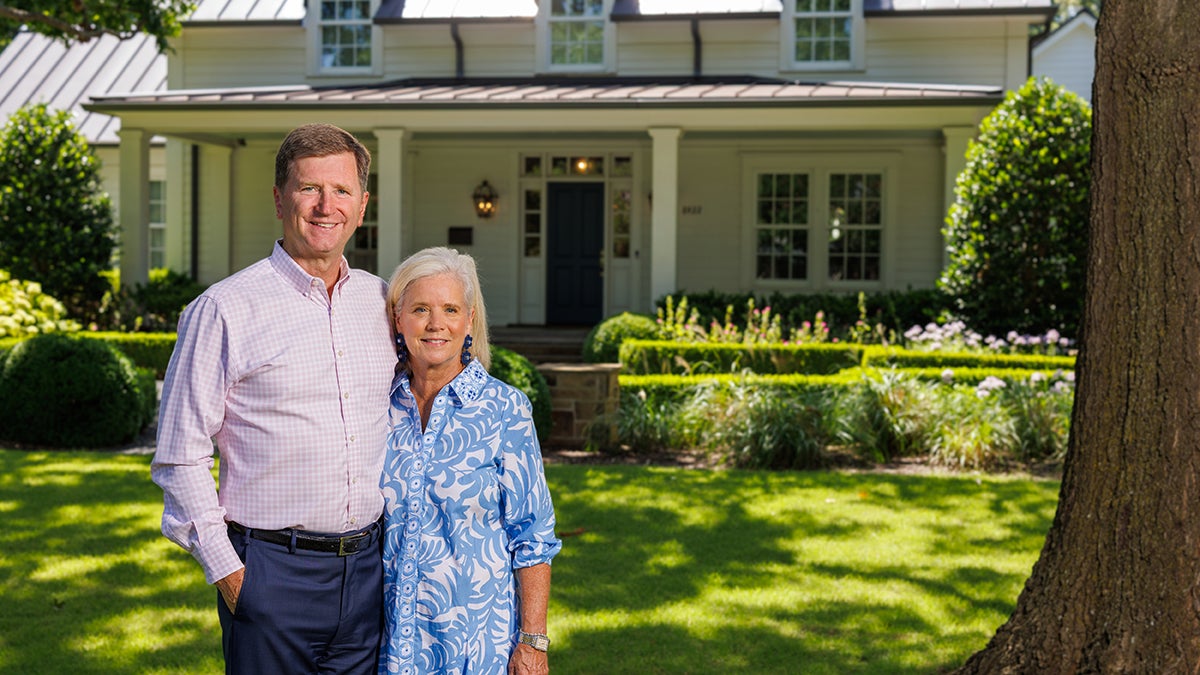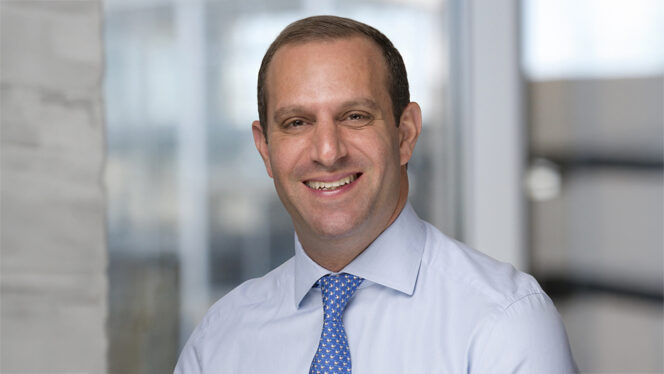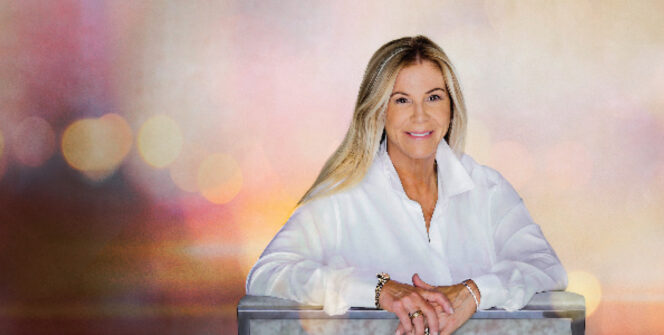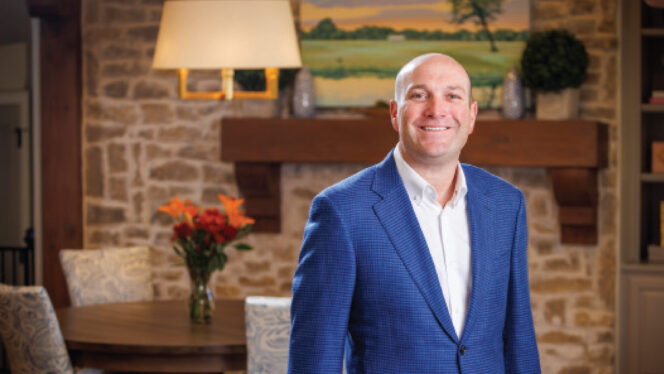In this Article
- Why journalism—and how did it shape your career path?
- How did you parlay your training as a journalist into a career in public relations and crisis communications?
- You led communications at Enron before, during and after its collapse. What did you learn from the experience?
- How did you find your way to Brunswick?
- How did you become interested in joining the BSW Dallas Foundation?
- Your daughters were born at Baylor University Medical Center, and many of your family members trusted Baylor Scott & White for care. Can you share an experience that was especially meaningful?
- Tell us about your family.
- You’ve made several gifts to Baylor Scott & White, including a recent planned gift called a charitable remainder unitrust (CRUT). What made you choose this giving vehicle?
Mark Palmer
In this Article
- Why journalism—and how did it shape your career path?
- How did you parlay your training as a journalist into a career in public relations and crisis communications?
- You led communications at Enron before, during and after its collapse. What did you learn from the experience?
- How did you find your way to Brunswick?
- How did you become interested in joining the BSW Dallas Foundation?
- Your daughters were born at Baylor University Medical Center, and many of your family members trusted Baylor Scott & White for care. Can you share an experience that was especially meaningful?
- Tell us about your family.
- You’ve made several gifts to Baylor Scott & White, including a recent planned gift called a charitable remainder unitrust (CRUT). What made you choose this giving vehicle?
Partner, Brunswick Group
Mark Palmer’s nearly 40-year career in corporate communications has taken him from newsrooms to boardrooms, guiding companies through crises and major transformations—including some you’ve heard of (Enron) and many you haven’t.
He originally planned to become a physician, but his path took a turn. He pivoted to journalism and built a career helping business leaders manage transformation.
He eventually found his way back to the world of medicine—though not in the way he originally imagined—through his service on the Baylor Scott & White Dallas Foundation Board. Mark shares insights from his career, why he and his wife, Cozy, support the BSW Mission, and a bit about his family.
Why journalism—and how did it shape your career path?
As a little boy, I knew I was going to Mizzou. My dad went to Mizzou. My aunt went to Mizzou. My cousins went to Mizzou. I was going to Mizzou to go through pre-med and medical school. And it took organic chemistry to help me realize that that was not in my future.
Maybe I was thinking at the time that someday I’ll be on the board of a foundation for a health system, and then I’ll be able to replay my old pre-med days.
I was at the right place at the right time—and there’s always a bit of serendipity or luck, but I truly believe you have to be ready for when preparation meets opportunity. And I got into the J school because I had worked so hard in pre-med. I had the liberal arts credits that the J school was looking for, and I had the grades, so I got accepted.
It turned out to be the best decision of my life at the time. My father, who was one of the most incredible role models in my life, was a little skeptical. He said, “It’ll be really good training for law school. You can be a lawyer.”
How did you parlay your training as a journalist into a career in public relations and crisis communications?
I could follow a story, and I could ask the tough questions, but there was just enough of a willingness to see the other side of the table as not evil, and I found myself identifying more with the people I was covering. I knew that in my heart I would be better in public relations than I would be in reporting. At the same time, I still have a tremendous respect for the place journalism has in our society.
I knew how hard I had worked in J school succeed. It’s a hard business, and special people practice it. It’s served me well throughout my career—having a natural respect for journalists and the self-awareness that I had the head for it, but I didn’t have the heart for it. I tell journalists that I respect what that do. I respect it because I tried it.
You led communications at Enron before, during and after its collapse. What did you learn from the experience?
Always tell the truth. I can help leaders communicate and lead in a crisis, but by the very definition it’s not something that you manage. This helps people understand that crises are temporal and at the end of the day, they are opportunities. If leaders are honest about the issue, they can lead their company through the crisis and emerge stronger.
So much depends on your mindset—how you choose to see the situation. Crises always reveal something, whether it’s about your business, your leadership or your personal life. They expose truths. But if you’re willing to confront those truths honestly and candidly, you can use the moment to lead more effectively. That’s where real transformation happens.
How did you find your way to Brunswick?
While I was at Enron, I was exposed to Brunswick, which is I think the world’s greatest critical issues advisory firm. After the financial crisis, Brunswick was thinking about expanding into Texas. They called me and asked where they should consider opening an office. I don’t think they were expecting me to lead it. It was more of a casual call from a friend, just asking for my advice. I said, “Dallas.” Later, I thought, You know what? I might actually be interested in that. So, I called my colleague back and told him I was interested.
How did you become interested in joining the BSW Dallas Foundation?
Robin Robinson, the former BSW Dallas Foundation president, thought I would connect with Baylor’s Mission, especially given my experience on another health system’s board. He was absolutely right. It’s really been tremendous to see compassionate care in action.
Your daughters were born at Baylor University Medical Center, and many of your family members trusted Baylor Scott & White for care. Can you share an experience that was especially meaningful?
What really brought Baylor’s mission home was a board presentation from Dr. Robert Fine, a palliative care specialist. At the time, my mother-in-law was in the late stages of Alzheimer’s. I told Cozy, my wife, we need to get Dr. Fine on the phone with her brothers and sisters to talk about her mother’s care. He did a conference call with my wife and her four siblings, and they had the most incredible alignment after that call about what would bring my mother-in-law the most joy at the end of her life.
It seems like every board meeting the speakers touch on a central tension between waiting for disease to present itself and treating it versus preventing it. For example, when Dr. Ronan Kelly came and talked about the blood tests for cancer, it made so much sense. It highlights Baylor’s willingness to provide compassionate care and prevent disease before it’s advanced.
Tell us about your family.
Cozy and I have four grandchildren, and both of our daughters are doing great. We get to see them a lot. We’re so blessed to have them close and to have them be such a big part of our lives.
You’ve made several gifts to Baylor Scott & White, including a recent planned gift called a charitable remainder unitrust (CRUT). What made you choose this giving vehicle?
Giving and philanthropy should be part of any financial plan, but it can be intimidating to figure out how to structure a gift. Our financial advisor let us know about other vehicles instead of just writing a check—like the CRUT. We worked with Craig Foster and Lynn Bohne at the Dallas Foundation to structure a CRUT benefitting Baylor Scott & White.
It’s a tremendous way to make a long-term commitment at a level that will probably end up being two to three times larger than our initial commitment because of the way a CRUT grows.
I never imagined I’d be involved in philanthropy. But when a few things go your way in a career and you find yourself fortunate enough to give, it means so much. I don’t take that opportunity for granted, so I try to be purposeful about it. That’s why I believe giving should be part of any financial plan, because at any level, the act of giving is one of the most meaningful experiences you can have.

